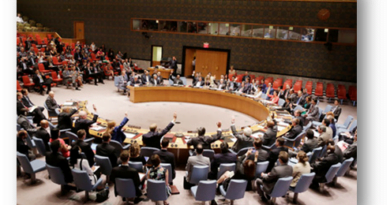Article 15 of the Constitution of India
Introduction:
- Article 15 of the Constitution of India forbids discrimination on grounds only of religion, race, caste, sex, or place of birth.
- It applies Article 14’s general principle of equality in specific situations by forbidding classifications made on protected grounds.
- While prohibiting discrimination based on prejudice, the Article is also the central issue in a large body of judicial decisions, public debate, and legislation revolving around affirmative action, reservations, and quotas.
- As of the 103rd Amendment of the Constitution of India, Article 15 has five clauses.
- Clause (1) prohibits discrimination against citizens on protected grounds.
- Clause (2) mandates that citizens may access various public or commercial spaces or utilities without discrimination on protected grounds.
- Clauses (3)-(5) create exceptions or ‘special provisions’ for these general prohibitions, by allowing the State to create special provisions for women, children, socially and educationally backward classes, scheduled castes and scheduled tribes and economically weaker sections.
What does discrimination demonstrate?
Article 15: Interdiction of discrimination
Article 15(1):
State prohibit from discriminating any of the citizen basis of the following categories
Caste: Discrimination in the name of name of caste is prohibited. This averts the crimes against less fortunate
Race: Person’s origin shouldn’t be on the basis of discrimination.
Religion: Person shouldn’t be discriminated on the basis of religion in order to enter any public place etc�
Place of Birth: No person place of birth can’t be taken into consideration and discriminate them.
Sex: Gender of any particular individual can’t be a basis so as to discriminate.
In the case DP Joshi v/s State of Madhya Bharat , One medical college which was established in Indore which was under the control of Madhya Pradesh Government. The government of state had made rule which says that all the Accommodating students residing in Madhya Bharat wouldn’t be required to pay any capitation fees, but all the non-domicile students had to pay a nominal fee of 1300-1500 Rs as capitation fees. This rule was challenged by filing a writ in Supreme Court under the Article 32 claiming that it had violated the Fundamental rights.
Article 15(2):
- Article 15(2) states that no individual shall be subjected to restriction, any disability or any other form of discrimination with regard to:
- Article 15(2) was invoked in the case Nainsukhdas v/s State of Uttar Pradesh.
- In this instance, the state had constructed distinct election boards for various religions. The court ruled that the government cannot discriminate against any individual.
Article 15(3):
- This section has no effect on the state’s ability to enact specific legislation for women and children. The state has the authority to provide particular accommodations for women and children under this article.
- The court ruled in the case Yusuf Abdul Aziz v/s State of Bombay 3 that only men can commit adultery and be punished for it under Section 497 of the IPC. The court also decided that a woman cannot be penalised for aiding and abetting, as this would violate Articles 14 and 15 of the Constitution.
- According to the court, because art 15(3) is a specific provision created by the state for women, the woman was spared under this article. Adultery was decriminalised recently in Joseph Shine v/s Union of India 4 because it violated Art 14, 15, and 21 of the Indian Constitution. As a result, it is no longer considered a crime and can only be used as a basis for divorce.
Article 15(4):
The first amendment to the Constitution added this article. This article was added by our Indian Constitution’s constituent assembly, which authored it. This article gives the state the authority to establish specific arrangements for:
- Backward classes of citizens
- Schedule class
- Schedule tribes
The case State of Madras vs. C. Dorairajan 5 is a historic decision that resulted in the addition of Article 15(4) to the Indian constitution. This is India’s first important court decision dealing with reservations. The Madras high court issued a ruling that reserved seats in government positions and higher education institutions based on caste.
According to the Supreme Court, reservation under article 15(4) is purely based on Caste. It further said that article 15(4) does not contain any reservations based on the phrases backward and more backward classes, nor does it give any classification based on the same terms.
Article 15(5):
The state is empowered under this article to enact provisions that aid in the upliftment of socially and educationally backward communities, such as Scheduled Castes and Scheduled Tribes. Under this article, the state has the authority to impose laws that apply to all educational institutes, whether state-aided or not, regardless of the minority educational institutes mentioned in Article 30(1).
Article 15(5), which solely serves as a “enabling section,” was added to the 93rd amending act. In the case “Ashoka Kumar Thakur vs Union of India”8, this was determined. In addition, the court declared in the case “T.M.A. Pai Foundation”9 that under Art 19(1)(g) of the Indian Constitution, an individual has the freedom to create and govern any private educational institution. As a result, the court explicitly stated that art 15(5) does not infringe art 19(1)
While all the above discussed mutually deal with Art 15, the court have always upheld both Art 15(4) and Art 15(5) are valid and both of them are not contradicting to each other.
Mandal Case:
The concept of a creamy layer was used in this case. In the case Indira Sawhney vs Union of India, the idea of a Creamy Layer was established. 10. The Supreme Court ruled that OBCs will be given a 27 percent preference in government positions. In this situation, it was also indicated that the reserve would only be offered for the first phases of appointments and not for the subsequent promotion process.
The total amount of reservations must not surpass 50%. (Because 22.5 percent is already set up for SCs and STs.) Following the Indira Sawhney case, numerous state governments and other governing bodies have voted in favour of the Mandal Report, deeming it genuine. This case was brought up under Article 16(4) of the Constitution.
Article 15(6):
This article gives the government the authority to establish specific provisions for the advancement of “economically weaker groups” of society, including reservations in educational institutions. In 2019, the 103rd amendment was added to the Constitution. In addition, 10% of the reservation must be set aside for EWS, according to the article. This ten percent of reservations is independent of any current reservation ceilings.
Conclusion:
Article 15 is the protector of the oppressed and a shield against discrimination; it has helped Indian society stand tall and proud in the face of enormous diversity, sexism, racism, It has long contributed to India’s unity and equality, despite a rigorous caste structure, and it will continue to do so indefinitely.
Article 15 has always gone out of its way to help those who are actually in need. Since its start in 1949, the situation of the oppressed has vastly improved. It serves as a foundation for all the legislature needs to establish provisions to foster societal peace. The number of incidences of atrocities committed against the poor has drastically decreased
Source: M Laxmikant
You can find many articles on CONSTITUTION (part of GS II) in our website. Go through these articles share with your friends and post your views in comment section.



